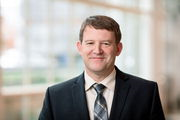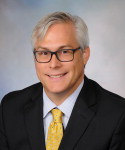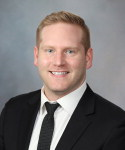Mayo Clinic Office of Translation to Practice announces Innovation Accelerator Awards
The Mayo Clinic Office of Translation to Practice, part of the Center for Clinical and Translational Science, selected projects for 2021 Innovation Accelerator Awards.
After competitive review of 94 proposals received, these projects were selected to receive funding, along with support from a customized technology development team:

"Helper-Dependent Adenoviral Gene Therapy Vectors for Delivery of Large Genetic Payloads"
Michael Barry, Ph.D. (INFD ’06), Division of Infectious Diseases, Mayo Clinic in Rochester

"Interpretation and Reporting of Fourier-Transform Infrared Spectroscopy Spectra Using Artificial Intelligence"
Rickey Carter, Ph.D. (HSR ’09), Department of Quantitative Health Sciences, Mayo Clinic in Florida; Joshua Bornhorst, Ph.D. (LABM & PATH ’17), Division of Clinical Biochemistry and Immunology, Mayo Clinic in Rochester; and Paul Jannetto, Ph.D. LABM ’12), Division of Clinical Biochemistry and Immunology, Mayo Clinic in Rochester

"Foamy Virus Gene Therapy Platform Development"
David Deyle, M.D. (MGEN ’12), Department of Clinical Genomics, Mayo Clinic in Rochester

"Prototype of the Novel Adjustable Fracture Nail for Long Bone Fractures"
W. David Freeman, M.D. (TY ’02, N ’05, CCMN ’06), Department of Neurologic Surgery, Mayo Clinic in Florida; Marion Turnbull, Ph.D. (NSCI ’19), Department of Neuroscience

"Synthetic Flavonol Lead Development for the Treatment of IPF"
Andrew Haak, Ph.D. (PHYS ’16), Department of Physiology and Biomedical Engineering, Mayo Clinic in Rochester

"Galectin-9 as a Therapeutic Target for Cancer Immunotherapy"
Svetomir Markovic, M.D., Ph.D. (I ’96, HEMO ’99), Division of Medical Oncology, Mayo Clinic in Rochester

"Repurposing Oncolytic Virotherapy to Enhance Efficacy of CAR-T Cell Therapy for Solid Tumors"
Richard Vile, Ph.D. (MMED ’98), Department of Molecular Medicine, Mayo Clinic in Rochester
The Innovation Accelerator Awards support projects that aim to develop new products with commercialization potential, such as medical devices, diagnostics, therapeutics, artificial intelligence or other human health innovations. The program also seeks to accelerate the maturation of an existing high-value opportunity by identifying and resolving technical and commercial risks. Medical need and commercial potential are key criteria in project selection. Other important considerations include readiness for translation and the strength of the research team and collaborators.